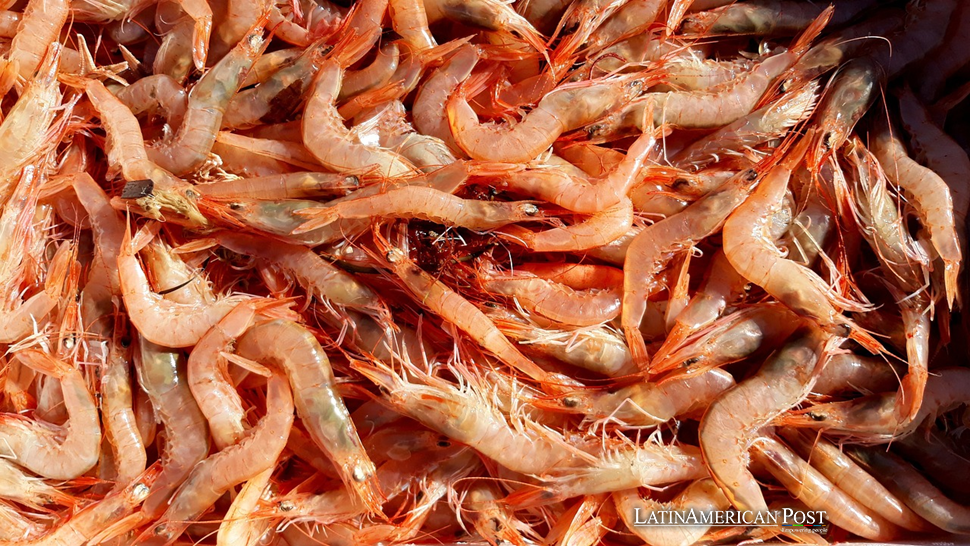Honduras’ Shrimp Businesses Faces Unprecedented Crisis

Honduras’ shrimp industry is grappling with an unprecedented crisis driven by falling prices, rising production costs, and failed export agreements with China. The sector, a vital part of the economy, is now searching for new markets to recover.
A Global Market Crisis Hits Honduras’ Shrimp Industry
Honduras, a major shrimp producer in Central America, is facing a severe economic crisis that threatens the livelihoods of thousands. Once a cornerstone of the country’s aquaculture sector, the shrimp industry struggles to stay afloat as low market prices and high production costs eat into its profits. This bleak situation has been compounded by failed attempts to open new export markets, most notably in China, and the loss of established markets like Taiwan.
“We are going through an unprecedented crisis, impacted by a global market crisis with low prices and high production costs,” stated the National Association of Aquaculture Farmers (Andah) in a press release earlier this week. The industry’s losses in 2024 have already surpassed $47.7 million, with 6.2 million kilograms of shrimp left unsold following the closure of the Taiwanese market. In addition, a temporary shutdown of Mexican customs for shrimp imports has resulted in a further loss of $14.5 million and 2.2 million kilograms of shrimp, according to Andah.
The collapse of the Taiwanese market, once a reliable destination for Honduran shrimp, has left local producers scrambling to find new buyers. The problem has been exacerbated by broader global market conditions, with many countries facing economic challenges and reduced demand for imported seafood. As a result, shrimp prices have plummeted, making it difficult for Honduran producers to cover the rising feed, labor, and transportation costs.
“Our shrimp farmers are being hit from all sides. They’re facing higher costs to produce shrimp while struggling to sell it fairly in a saturated global market,” Andah’s statement continued, reflecting the frustration many in the industry felt.
The Failed China Deal and the Search for Solutions
Honduran shrimp producers became a potential new market after the country’s diplomatic shift from Taiwan to China in 2023 to alleviate the crisis. Hopes were high when Honduras signed a pre-agreement with a Chinese company to export 250 containers of shrimp, but the deal quickly fell apart due to price disputes.
In July, the first shipment of two containers carrying 36 tons of shrimp arrived in China tariff-free, marking a significant step toward opening the Chinese market. However, Andah soon announced that the more substantial deal with China had “failed due to pricing issues,” leaving both small and large shrimp producers without a clear path forward.
“This failed deal with China has left producers struggling to find new markets for their shrimp,” Andah reported. The loss of what was supposed to be a breakthrough market has put many producers in a precarious position, forcing them to seek alternatives as quickly as possible.
Despite the setback, the Honduran aquaculture industry is not giving up. Andah is actively working to find new buyers and market opportunities. One critical effort involves participating in the global seafood expo in Qingdao, China, where Honduran shrimp will be showcased under the national brand “HONDUMEI.” The organization hopes this event will attract new business partnerships and help fill the void left by the Taiwanese market.
In addition to trade shows, the Honduran ambassador to China, Salvador Moncada, has been working alongside the shrimp industry to facilitate meetings with Chinese business leaders. These efforts aim to revive negotiations and secure deals that could help stabilize the industry. However, success is far from guaranteed, and the industry remains on edge as it navigates this challenging period.
The Economic Impact on Shrimp Producers and Workers
Honduras’ shrimp industry is not just about exports and profits—it’s about people. The sector generates around 20,000 direct jobs and contributes approximately $300 million annually to the country’s economy. However, the current crisis is putting thousands of livelihoods at risk, particularly in coastal communities where shrimp farming is a primary source of income.
As global prices for shrimp remain low, many producers are finding it increasingly difficult to break even. Small-scale farmers, in particular, are struggling to keep their operations running. Rising production costs, including the price of feed and the energy needed to maintain shrimp ponds, are squeezing already thin profit margins.
“The industry’s workforce is bearing the brunt of this crisis,” said a spokesperson for Andah. “When farmers are forced to cut costs, it often means reducing their labor force or cutting wages, which directly impacts the families who rely on these jobs.”
The ripple effect extends beyond the farms themselves. Suppliers of feed, equipment, and other necessary materials are also feeling the pinch. As production slows, so does the demand for these inputs, affecting businesses up and down the supply chain.
Despite these challenges, shrimp producers are trying to adapt. Some are experimenting with cost-saving technologies, such as more efficient feeding systems and energy-saving practices, to reduce expenses without sacrificing output. Others are diversifying their customer base, selling to domestic markets, or exploring opportunities in niche markets where higher prices can be achieved.
Still, many fear the situation could worsen without a stable and profitable export market in the coming months. “We are at a crossroads. Without immediate support or new markets, the future of Honduras’ shrimp industry is uncertain,” the Andah representative warned.
Seeking New Markets and Government Support
In response to the crisis, Andah has called on the Honduran government to take action. The association insists that government support is essential to keep the industry afloat, particularly in searching for new markets and securing favorable trade agreements.
“The government must continue supporting the shrimp industry, which directly provides 20,000 jobs and generates $300 million annually,” Andah emphasized. With the industry’s contribution to the national economy at stake, ensuring its survival is critical for producers and the country.
One area where the government could significantly impact is securing access to renewable export markets. While China remains an important target, other regions, such as Europe and North America, offer potential opportunities. Expanding trade agreements with these regions could provide the industry with much-needed relief, especially as global demand for seafood continues to grow.
In addition to market access, shrimp producers are urging the government to invest in infrastructure improvements that could help reduce production costs. This includes better access to transportation networks, reliable electricity, and affordable inputs like feed. “Reducing costs is key to helping producers stay competitive in a global market where margins are shrinking,” said an industry expert.
There is also hope that ongoing diplomatic efforts will open doors to new markets. The Honduran government and industry leaders actively seek to reestablish strong trade relationships with countries interested in Honduran shrimp. Participation in international seafood expos like Qingdao will be critical in showcasing the country’s products to potential buyers.
While the challenges are immense, there is cautious optimism that Honduras’ shrimp industry can recover with the right strategies. “It’s not going to be easy, but we’re working hard to find solutions,” an Andah representative said. “We believe that with new market opportunities and government support, we can get through this crisis and come out stronger.”
Honduras’ shrimp industry is facing one of the most challenging periods in its history. With millions of dollars lost due to falling prices, rising production costs, and the collapse of key export markets, the sector urgently needs solutions. The failed deal with China, seen as a lifeline for the industry, has added to the uncertainty, leaving producers searching for new buyers.
Despite these challenges, there is hope on the horizon. Efforts to secure new markets through international trade shows and diplomatic negotiations are underway, and the industry is calling for increased government support to weather the storm. The stakes are high for thousands of workers and businesses that depend on shrimp farming.
Also read: Paraguay’s Shrinking River Fuels Conflict Between Fishers and Farmers
As Honduras navigates this crisis, the resilience of its shrimp producers will be tested. But with determination, innovation, and the right partnerships, the industry may yet find a way to recover and thrive in a competitive global market.





